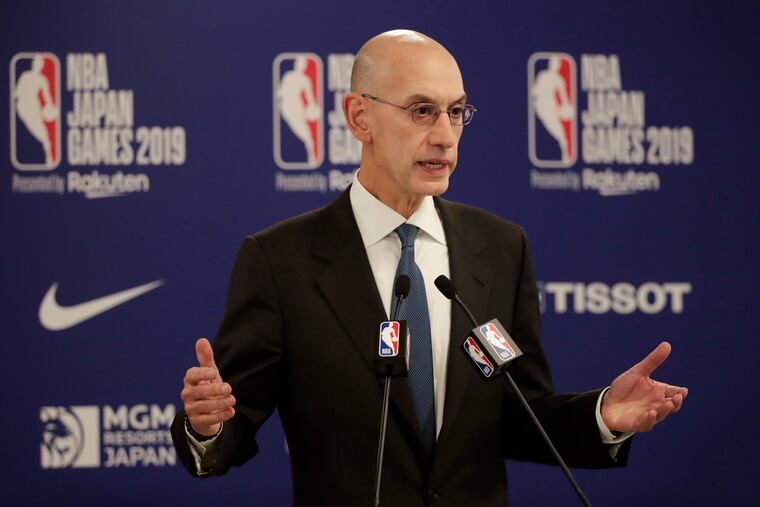NBA Commissioner says players, executives are free to comment on China
NBA Commissioner Adam Silver on Tuesday attempted to clarify the league's stance toward China, saying in a statement the NBA will not censor players or team executives who have views on human-rights issues.

NBA Commissioner Adam Silver on Tuesday attempted to clarify the league's stance toward China, saying in a statement the NBA will not censor players or team executives who have views on human-rights issues. The statement came one day after the league was criticized for its initial response to Houston Rockets general manager Daryl Morey's tweet in support of protesters in Hong Kong, one seen by many as deferential to the league's Chinese business interests.
"It is inevitable that people around the world - including from America and China - will have different viewpoints over different issues. It is not the role of the NBA to adjudicate those differences," Silver said.
"However, the NBA will not put itself in a position of regulating what players, employees and team owners say or will not say on these issues. We simply could not operate that way."
On Friday, Morey tweeted but quickly deleted a message that read "Fight for Freedom. Stand with Hong Kong," a message of support for pro-Democracy protests that have swelled over the summer. In response, the Chinese Basketball Association announced it would sever ties with the Rockets, as did Tencent, the NBA's rights holder in China, and the Rockets' Chinese sponsors. On Monday, the league issued a statement in which it said it recognized that Morey's comments "deeply offended many of our friends and fans in China, which is regrettable," drawing fire in the United States for appearing to put the league's economic interests in China - the NBA's most recent five-year television rights extension with Tencent was reportedly worth $1.5 billion - ahead of the rights of its players and executives to speak freely about human-rights issues.
Silver's statement Tuesday was an attempt to rebut that notion.
"But for those who question our motivation, this is about far more than growing our business," he said.
After Silver issued his statement on Tuesday, the sports arm of Chinese state broadcaster CCTV announced it would not broadcast the NBA's preseason games being played in China this week.
"We believe any remarks that challenge national sovereignty and social stability do not belong to the category of free speech," CCTV said in a statement.
Silver told reporters in Tokyo on Tuesday that he anticipated such a fallout in China.
"I do know there are consequences from freedom of speech; we will have to live with those consequences," he said.
Golden State Warriors coach Steve Kerr, one of the NBA's most outspoken voices on the subject of human rights, said Monday night that he was not prepared to comment on the China issue because he had not studied it enough.
"It's a really bizarre international story and a lot of us don't know what to make of it," he said. "It's something I'm reading about just like everybody is but I'm not going to comment further than that."
"It's easy to speak on issues that I'm passionate about, that I feel I'm well-versed on," Kerr said. "I've found it makes the most sense to stick to topics that fall in that category. So I try to keep my comments to those things. . . . It's more that I'm just trying to learn. My brother-in-law is actually a Chinese history professor and I emailed him today to tell me what I should be learning about all this and what's happening, so I'm just trying to learn just like everybody else."
Kerr added that no one from the league or the franchise had ordered him or his players not to comment on the issue.
Silver also announced Tuesday that he plans to meet with Chinese basketball legend Yao Ming, now the chairman of the Chinese Basketball Association.
“I’m hoping together Yao and I can find an accommodation, but he is extremely hot at the moment and I understand it,” Silver said.